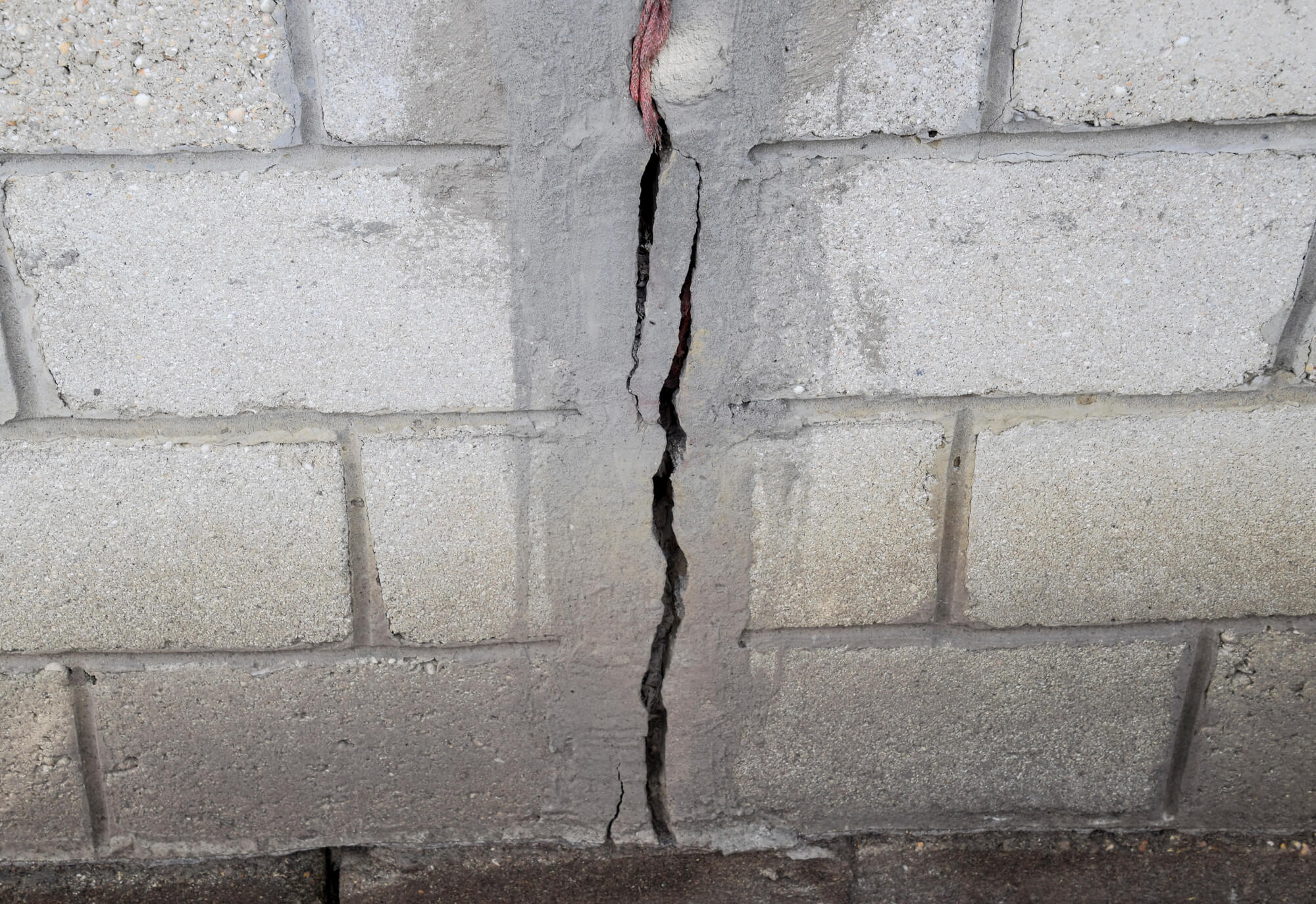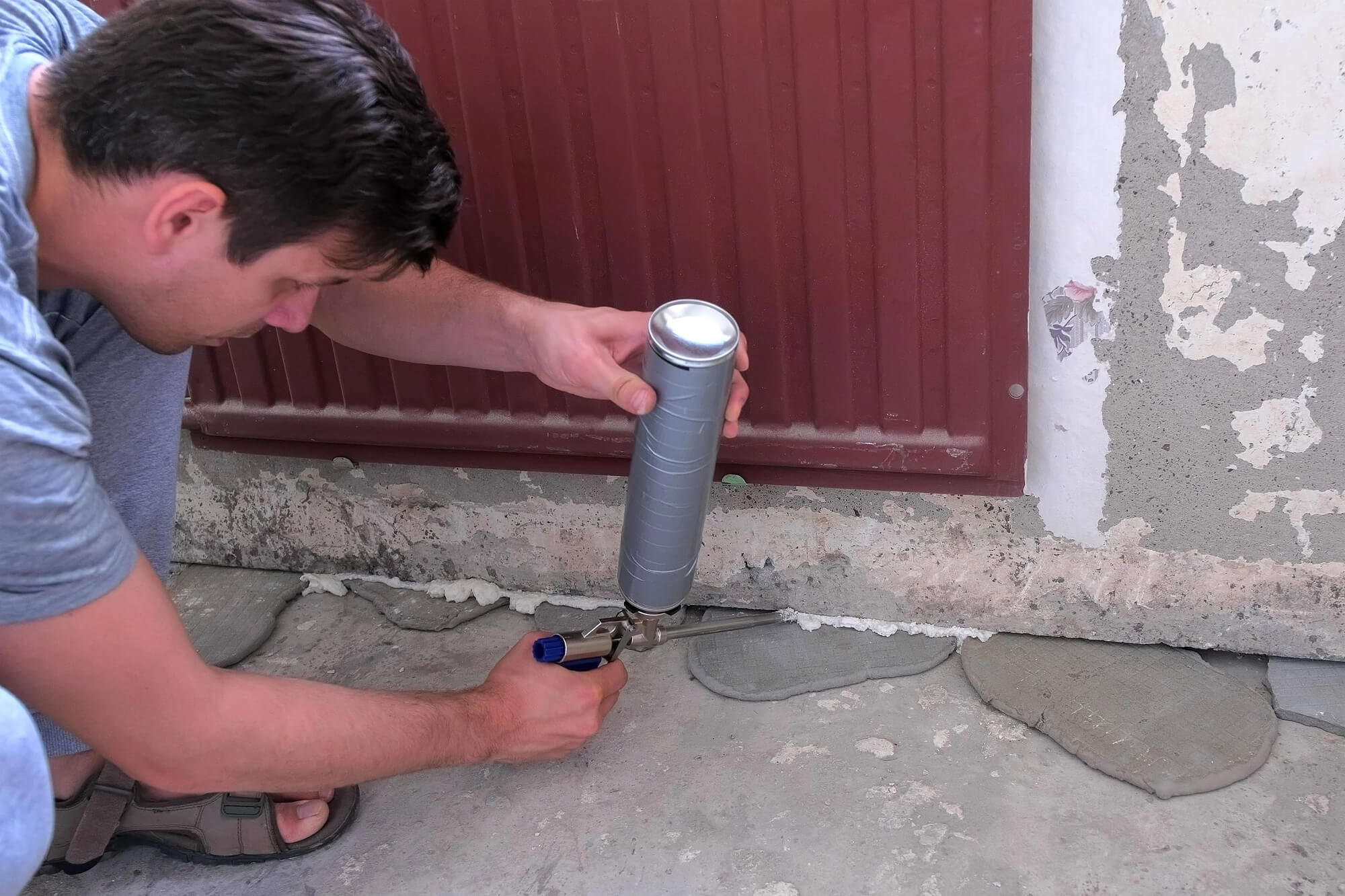Your home’s foundation is the backbone of its entire structure. When foundation problems go unnoticed, they can cause significant stress on building materials, leading to deterioration of materials, water damage, and even structural failure. Many homeowners don’t realize that seemingly minor issues—like small cracks in drywall or sticking doors—can be early warning signs of bigger foundation concerns.
By knowing what to watch for, you can take proactive maintenance steps, call a foundation repair specialist, and avoid costly repairs down the road. In this article, we’ll outline the 10 most common residential foundation repair warning signs, explaining how they affect your home and when to call for a professional inspection.
1. Cracks in Walls, Floors, or Ceilings
Cracks are among the most obvious warning signs of foundation issues. While minor hairline cracks might result from natural foundation settlement, larger or widening cracks can indicate more severe foundation movement or stress on the building frame.
- Drywall cracks often appear near door frames, windows, and ceilings.
- Masonry cracks can form in exterior walls or brick siding, sometimes following a stair-step pattern.
- Cracks in floors or the slab foundation may signal uneven soil compaction or water damage beneath the surface due to slab foundation issues such as improper installation of the slab, or drainage issues.
Ignoring these cracks allows excessive stress on building materials to worsen over time, potentially compromising the entire structure.
Differentiating Between Horizontal, Vertical, and Diagonal Cracks
Understanding the type of crack is also crucial in determining the underlying issue:
- Vertical Cracks: Often less concerning, vertical cracks typically result from natural settling and may not indicate serious foundation problems. However, they should be monitored for changes in size.
- Horizontal Cracks: These are more alarming, as they can signal severe pressure and contraction of building materials from soil or water pushing against the foundation walls. Horizontal cracks often suggest structural issues that require immediate attention from a foundation specialist.
- Zigzag or Diagonal Cracks: These foundation cracks can be symptomatic of differential settlement, where one part of the foundation moves more than another. Diagonal cracks or those in a zigzag pattern typically run from the ceiling to the floor at a slope and can indicate the need for professional evaluation.
Differentiating between these types of cracks helps homeowners prioritize inspection and repairs, focusing on the most serious issues first and preventing minor foundation problems from escalating.
2. Doors and Windows That Stick or Don’t Close Properly
When your house foundation shifts, the building frame becomes misaligned. This often causes:
- Doors to stick, scrape the floor, or fail to latch properly.
- Windows that jam, making them difficult to open or close.
- Gaps forming around frames, letting in water, dirt, or humidity.
- Loose hardware, like hinges on doors or cabinets, due to shifting frames.
These problems are not just annoyances; they’re clear foundation repair warning signs that your home’s structure is under stress, either from water or humidity issues, poor soil conditions, or even pier and beam foundation termite damages. If left unresolved, the weight of the building can cause more severe damage to walls and door frames.
3. Uneven or Sloping Floors
If you’ve noticed that bookshelves, cabinets, or furniture tilt, or if objects roll across the floor, your foundation may be settling unevenly.
- Soil expansion or runoff from poor drainage can wash away subsoil beneath the foundation.
- Water intrusion from plumbing leaks or hidden pipe leaks can weaken support areas.
- Excessive weight or poor load distribution on building materials can lead to sagging and uneven floors.
- Built-in bookshelves, molding, or bolted-down furniture will also begin to show signs of stress or even cracks in the wood.
Uneven floors are more than a cosmetic issue—they can signal structural failure if the underlying problem isn’t fixed promptly. Take any smooth rolling object, from a tennis ball to a marble, and look for excessive or unexplained slopes on your floors.
4. Gaps Between Walls, Ceilings, or Floors
As your foundation shifts, you might notice gaps:
- Between walls and ceilings.
- Around door frames and window sills.
- Along baseboards or flooring edges.
- In long-spanning floor and ceiling joints.
- In the case of tile floors, you’ll see cracked tiles along the floor or even notice tile backsplashes separate in your kitchen.
These gaps often appear in a single or a couple of windows and doors due to a variety of reasons, like bent frames or poor installation. However, suppose the problem is widespread or unsolved after fixing frames and hinges. In that case, the culprits will likely be soil contraction or movement, temperature fluctuations, frozen soil thawing, or deterioration of materials from water damage and humidity exposure. Over time, they can let in debris, water, and pests, creating even bigger problems for your home’s interior and exterior walls.
5. Leaning or Bowed Walls
If your retaining or basement walls start to bow or lean inward, this is a serious house foundation red flag.
- Hydrostatic pressure from excess water or poor runoff can push soil against the walls.
- Expansive clay soils in San Antonio react to sudden or constant moisture and seasonal temperature changes, causing excessive stress that shows in leaning or misaligned load-bearing walls.
- Over time, this pressure can lead to structural failure, making your home unsafe.
An immediate inspection by a foundation repair specialist is essential to prevent a collapse or further damage to the building frame.
6. Water Intrusion, Moisture, or Mold in the Basement or Crawl Space
Excess water or humidity in your lower levels is one of the most damaging foundation repair warning signs, especially in basement and crawl space foundations.
- Water stains, rust on metal fixtures, warped wood, or deteriorating wood beams indicate long-term water exposure.
- Mold and mildew thrive in damp environments, spreading spores that can harm your health and weaken wood framing.
- Moisture often comes from hidden pipe leaks, roof leaks, drainage issues, or even sloped landscaping that directs irrigation or natural runoff towards the building, which also erodes the soil beneath the property.
Facilities professionals often recommend regular checks for water leakage or intrusion to prevent long-term damage to a facility or home structure.
7. Cracks or Shifting in Exterior Masonry or Chimney
Your exterior walls and siding can reveal early signs of foundation trouble:
- Stair-step cracks in exterior brickwork or masonry.
- A cracked or leaning chimney that’s beginning to separate from the home.
- Gaps where mortar has crumbled due to water runoff or natural settlement.
These visible changes outside the home indicate foundation movement and stress on the entire building frame, requiring prompt evaluation by an inspector or repair professional.
8. Nails Popping Out of Drywall or Buckling Sheetrock
While this may seem minor, it’s often an alarm for deeper issues:
- Shifting foundations distort the wall framing, forcing nails out of drywall.
- Buckling or wrinkling wallpaper may hide cracks beneath.
- Repeated repairs in the same spots suggest an ongoing foundation failure rather than normal wear and tear.
This is one of the most overlooked foundation repair warning signs, but catching it early can save thousands in future repairs and neutralize serious safety issues.
9. Persistent Mold, Mildew, or Musty Odors
Mold and mildew often indicate ongoing moisture problems linked to foundation issues:
- Cracks or gaps allow water and dirt to seep inside.
- Humid environments from poor ventilation or hidden plumbing leaks foster mold growth.
- Prolonged exposure can weaken wooden beams, drywall, and siding, adding more stress to your home’s structure.
These odors are not just unpleasant—they’re a sign of serious water-related house foundation damage.
10. Visible Foundation Settling or Sinking Outside the Home
Look around the exterior of your property:
- Sunken areas near the foundation, uneven landscaping, or soil erosion can expose a settling foundation.
- Excessive runoff or debris buildup around the perimeter can worsen sinking.
- When you can visibly see parts of the foundation pulling away or dropping, it’s a critical warning sign of foundation failure.
Immediate inspection is crucial to avoid catastrophic structural issues.
When to Call a Foundation Repair Specialist
If you notice any of these foundation repair warning signs, don’t wait. Time is critical in preventing major structural damage to your home or facility.
- A professional foundation inspector can evaluate cracks, gaps, water stains, and other signs of excessive stress on building materials.
- Above All Foundation Repair in San Antonio specializes in diagnosing and repairing foundation issues caused by soil expansion, excessive water pressure, water runoff from nearby bedrock or irrigation, plumbing leaks, poor installation during the construction process, and natural settlement.
- Proactive maintenance saves you from costly, large-scale repairs and protects your home’s structural integrity for years to come. Fix any drainage issues, reinforce crawl space support for the floor, do regular plumbing inspections and foundation inspections, and much more.
Home improvement experts recommend scheduling a foundation inspection if you spot these signs, keeping peace of mind for homeowners and facilities professionals alike.
Know The Signs to Keep Your Foundation Above All
Foundation problems rarely fix themselves—they only worsen over time, leading to concrete foundation damage, costly deterioration of materials, and risking the safety of your home. Whether it’s foundation cracks, a sinking foundation, or sloping floors, ignoring the signs of bad foundation issues can result in severe structural problems that affect every part of your property.
By keeping an eye out for damage in your brick wall, concrete surfaces, or even moisture that requires basement waterproofing, you can take action before problems escalate. Watching for these 10 warning signs is the best way to fix foundation problems, prevent major repairs, and safeguard your biggest investment.
If you’ve noticed cracks, gaps, moisture, or other signs of foundation failure, contact Above All Foundation Repair today. Our skilled inspectors and repair specialists will give you an honest assessment and provide solutions to keep your home or commercial property safe, stable, and secure for years to come.



